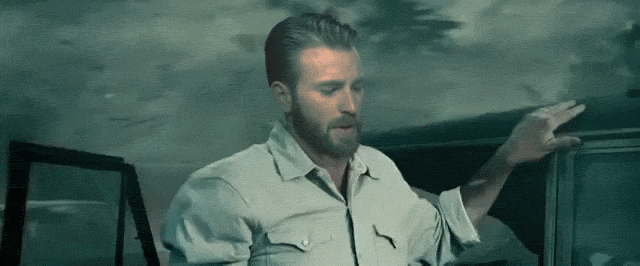Thanks a lot! You totally got it right! I like the part about Batman representing post 9/11 america, I'll add that to the post if you don't mind, I'll credit you for it.

And yeah, the point of Superman being faced with his own mortality for the first time and still choosing to be the hero and put himself in harm's way to protect the world instead of letting other's take the fall, shows why he is the perfect Superman.
It wasn't a needless act. Was it a needless act when Superman fought Doomsday in the 90's comic arc? Was it a needless act when he doesn't let Wonder Woman or Batman risk their lives and takes it upon himself to kill Doomsday, knowing full well the risk of attacking that powerful a creature alone AND with a Kryptonite spear in his hands weakening him too?
Why was it a needless act? He put his life on the line and didn't expect Wonder Woman to kill DD even though she could, since she'd be risking her own life at the end there. If DD could kill Supes with his bone spike, he could very well kill Wondy with it too.
Haha, I love the way you put that.

It absolutely was not a needless act in the comic.
He was literally the only option in the comic.
That's what made it a noble sacrifice.
If he was the only option here, it could have worked.
It's a little thing called context.
Your point about the bone spike and WW is moronic as well because of context.
Do you know what the great advantage of a spear is?
It can be thrown.
The Ancient Greeks developed an entire series of sporting events around their weapons of war. They still celebrate these events at a thing called the Olympics.
Perhaps you've heard of a javelin?
Even without that, she could use a typical lance technique and guess what? She still has her magic shield which was also demonstrated to be proof against anything DD could dish out.
She didn't want to risk her life? Superman didn't want her to? Why didn't he tell her to leave when she first showed up then? By that time in the fight, she'd already proven she was far more effective at fighting Doomsday than Superman was.
Batman could have killed him with the spear.
Why is Superman even flying with the spear at all? Apart from the most idiotic of all possible ideas, it is contextually impossible according to the rules created by the movie itself.
mere minutes before, he was unable to retrieve the spear from the water by himself. He was weakened so drastically and so quickly that he had to be fished out and saved from drowning by Lois. She had to throw the thing away so he could regain consciousness.
How the hell is he flying with it?
If your answer is momentum, he could have simply thrown it then. And no Doomsday couldn't have gotten out of the way, because he didn't move while he was flying it at him.
What happened to the good idea of flying him into space?
Did Superman forget?
Or are we expected to believe that the idiot President who thought launching a nuke at a disappearing problem was such a good idea after completely failing the first time could possibly be ******ed enough to do it again?
It would have had more impact if Superman resolved it in a way that neither of his allies could have replicated.
Doomsday could still have impaled him on his spike and have him crash to Earth while Doomsday is flung into space.
For the second time (How exactly did Doomsday fall back to Earth the first time, when it was shown they had already passed beyond the gravitational pull of Earth? I forgot. Reasons)
The problem with the scene and the reason it fails is because it was not constructed around the idea of Superman giving his all in a final heroic noble moment, but around a shot Zack had in his head. Logic was not applied around making it sensible or believable.
He wanted to recreate the climactic scene from Excalibur, so he could book end both of his characters with Boorman's 1981 classic.
Batman is born after watching Excalibur, Superman dies in a recreation of the death of Arthur at the hands of Mordred.
Why did Superman pull himself further up the bone spike to plunge his weapon through Doomsday?
Kryptonite is toxic. Having it inside Doomsday's chest cavity is the best place for it. Pushing it out the other side is stupid, because it lessens the effect immediately. Why on earth would he do that? Is it because he's an idiot?
No, it's because Arthur did it in Excalibur.
The only reason the spear exists is so that Zack can shoot his Excalibur shot.
It's a ridiculous weapon for Batman to craft as part of his murder plot, when kryptonite bullets end it before it even starts. Mission accomplished. Or are all the main characters in this movie criminally stupid on purpose?




